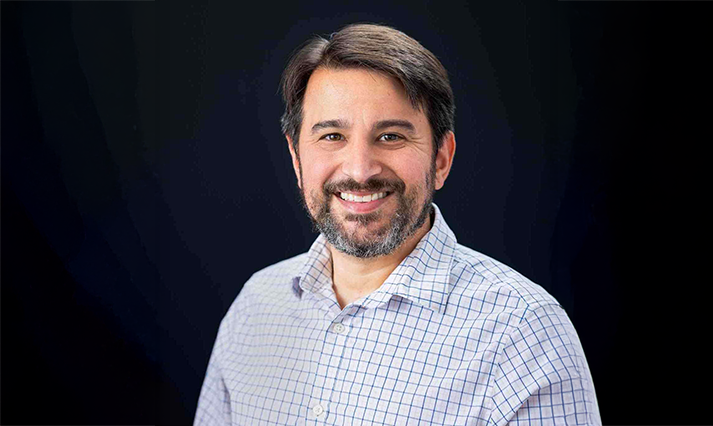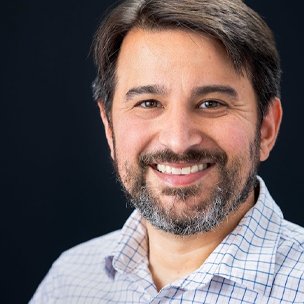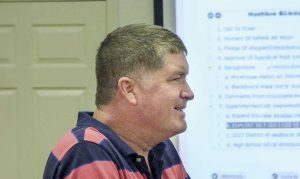It’s said that “all politics is local,” and that’s true right here in Peachtree City.
The decisions made by our mayor and city council determine how much we pay in taxes, how safe our neighborhoods feel, the condition of our roads and paths, and the kind of developments that define our future. That’s why the 2025 municipal elections matter and why it’s worth taking a closer look at who’s stepping up to lead.
According to the city, two candidates have filed their Declaration of Intent forms for mayor: Kim Learnard (the incumbent) and Eric Imker (a former council member).
For City Council Post 3, incumbent Clint Holland has officially filed to run again.
As for City Council Post 4, the picture is less clear. Current Councilmember Frank Destadio will not seek re-election. No other candidates have declared an intent to run.
We’ll take a closer look at each race in the coming months. But for now, let’s start with the returning candidate who’s been on the ballot more than anyone else in recent memory: Eric Imker.
Imker’s Political Track Record
Imker is no stranger to Peachtree City politics. He served on City Council from 2010 to 2015 after winning elections in 2009 and again in 2011. During his time on council, Imker built a reputation as a fiscal watchdog, frequently leading efforts to cut spending, build reserve funds, and plan for long-term infrastructure needs.
After stepping away from council, Imker has made several attempts to return to elected office. He ran for mayor in 2017 but lost to incumbent Vanessa Fleisch. In 2021, he launched another mayoral bid and advanced to a runoff with Kim Learnard, ultimately losing by about 390 votes. Most recently in 2023, he ran for Post 1 on City Council, finishing third and failing to make the runoff.
Imker’s Strengths
Now that his name could be back on the ballot, it’s worth taking a fresh look at what strengths he brings to the race.
Budget Discipline
Imker’s most consistent asset is his command of municipal finance. He can cite tax rates, capital costs, and reserve balances with ease, and his tenure on council was marked by a relentless focus on trimming expenses and building long-term financial stability. He was a key figure in helping Peachtree City navigate the aftermath of the Great Recession, pushing for conservative budgeting practices and long-range planning. He deserves credit for helping lay the financial foundation the city continues to benefit from today.
Engineering and Project Experience
Imker also draws heavily on his background in engineering and program management. His career included work with the U.S. Air Force, NASA, and private industry, where he led large-scale technical projects. In his 2021 letter explaining why he was running for mayor, he said that background gives him “unique qualifications to set the course for our city.” This could be useful as Peachtree City deals with aging infrastructure and growing demands on its transportation network.
Commitment To Peachtree City’s Village Concept
Imker has consistently positioned himself as a defender of the city’s original village concept. In his previous campaigns, he emphasized his commitment to stopping apartment projects, resisting large-scale rezonings, and preserving the city’s unique layout and green space. For voters who feel the city is changing too fast or straying from its roots, Imker’s platform has a reassuring appeal.
Imker’s Weaknesses
Although Imker brings experience and clear strengths to November’s election, he also carries significant stylistic and strategic weaknesses that could sink his latest campaign and make him an ineffective mayor if elected.
Collaboration And Tone
One of the most frequent criticisms of Imker is that he struggles to collaborate. To his credit, he worked effectively with individuals like then-Councilmembers Kim Learnard & Vanessa Fleisch during their shared time on council on efforts to stabilize the city’s budget. But in many other cases, he was often the lone dissenting vote. Some could view this as principled independence, but others viewed it as a barrier to effective governance. Imker openly stated in his 2021 mayoral kick-off letter to The Citizen that popularity isn’t a qualification he values. That may have served him well in certain debates, but the role of mayor requires bringing people together, navigating disagreement, and building consensus.
A particularly telling example of Imker’s collaborative shortcomings comes from the 2017 Citizen Special Purpose Local Option Sales Tax (SPLOST) Team. This was a group formed to review and recommend projects for Peachtree City’s then-new sales tax initiative. According to fellow member Mike LaTella, Imker brought a domineering “my way or the highway” attitude to the group. In a 2021 letter to The Citizen, LaTella recalled how Imker tried to control the process, resisted input from others, and ultimately stopped attending meetings when the group pushed back. “We’ve had that type of leadership before in our city, and it doesn’t work,” LaTella wrote. “If we elect Eric as Mayor, we will be trading effective government action derived through healthy and respectful debate for a lot of hot air, public displays of dissent, and lots of whining letters to the editor.”
Imker’s collaboration problem is compounded by his tendency toward sharp rhetoric. Over the years, his letters and public statements have often been combative. He’s accused city officials of “absolutely horrendous” oversight and implied that some can be swayed by “special interests.” In the 2021 runoff, he framed himself in a letter to The Citizen as “the only Republican for Mayor” and claimed his opponent “supports leftists.” While that kind of messaging may resonate with a particular base, it’s off-putting in a city where elections are nonpartisan and where many voters care more about parks and paths than political affiliation. By contrast, Mayor Learnard avoided party labels in that race and won by building a broader coalition.
The “Phantom Candidate” Problem
Another persistent knock on Imker is his visibility (or more accurately, the lack of it). Outside of campaign season, his engagement in city affairs is minimal. He occasionally pens a letter to The Citizen like his 2023 endorsement of SPLOST, but he hasn’t served on a municipal board or committee since his controversial involvement in the 2017 SPLOST effort. He also hasn’t led any meaningful municipal initiatives as a private citizen. His most recognizable contributions have been organizing Monopoly tournaments and community scavenger hunts. While these are commendable and community-minded, they don’t exactly address the city’s challenges.
Even when he does step into the political arena, visibility remains a concern. During his 2023 city council campaign, for example, he reportedly skipped the Rotary Club debate to go on a trip he had planned in advance. (Which has always made me wonder: why schedule a conflicting vacation when you know you’re campaigning for office?)
This pattern has earned him a reputation some political commentators derisively refer to as a “Phantom Candidate.” He vanishes between elections when there is real work to be done but reappears to ask for your vote.
A satirical Facebook post credited to local resident Marko Deresh circulated during his 2023 campaign captured this sentiment. It was harsh, but it was rooted in a perception shared by many voters:
In the quaint town of Peachtree City, nestled beneath the Georgia sun, there exists a peculiar creature named Eric Imker. For most of the year, he slumbers in the shadows, hidden from the hustle and bustle of community life. But as the leaves turn, and campaign season begins to rustle, the creature stirs.
Oh, how the townsfolk have grown accustomed to this eerie pattern. They know that when the first autumn breeze whispers through the streets, Eric Imker will emerge from his lair, much like an ancient worm waking from its age-old slumber.
While others diligently tend to the needs of the town throughout the year, Imker’s presence is scarce, his participation virtually non-existent. He is a phantom, save for one notorious exception: the annual Monopoly tournament.
But as the political season dawns, so too does Imker. He emerges, not as a board game enthusiast but as a political contender. The town can’t help but feel a sense of impending dread as they brace themselves for the return of the enigmatic Eric Imker, ready to once again torment their peaceful lives with promises and campaign fervor.
Will he prove to be a formidable opponent in the world of politics, just as he is on the Monopoly board? Or will the townsfolk see through his campaign-season persona, questioning whether Peachtree City needs a leader who only awakens from hibernation when the election drums start to beat? Only time will tell as the political creature of Peachtree City embarks on yet another campaign adventure, leaving the town to wonder what mysteries lie behind his elusive existence.
Always “Against,” Never “For”
Finally, Imker has not had a clear, forward-looking message. His past campaigns focused heavily on what he wants to stop: higher taxes, dense development, cost overruns. But this makes it hard to know what he is for. If elected mayor in 2025, what would he build, support, or champion to make Peachtree City stronger and more vibrant? If he’s had plans that addressed these in the past, they didn’t leave a lasting impression. Without a compelling vision for the future, it’s hard for him to inspire confidence in his leadership.
What Imker Could Do To Win
If this is going to be the year Imker finally breaks through, his campaign can’t look like it has in the past. While he’s consistently picked up a decent share of the vote, it’s never been enough to get him across the finish line. Going from 2nd place in 2021 to 3rd place in 2023 should also be troubling to him.
Imker needs change. And here are three suggestions for his consideration:
Offer Something New
Imker’s message hasn’t changed much since his first campaign. His core talking points—lower taxes, budget discipline, opposition to apartments—are now familiar to anyone who’s followed him over the years. But that message didn’t win in 2017 or 2021 or 2023, and it’s unlikely to work on its own in 2025. Something different is needed. That doesn’t mean he should abandon his principles, but it does mean expanding his platform. What does he want to accomplish over the next four years? What fresh ideas can he bring to traffic, recreation, economic development, or quality of life?
Bring People Together
To win a citywide election, Imker has to build a coalition beyond his base. That means reaching out to voters who may not identify as conservative or who might have been turned off by his past rhetoric. He needs to be a serious, unifying leader who is capable of representing the entire city, not just those who already agree with him (because clearly, that base alone hasn’t been enough to get him past 50%). He needs a more inclusive tone and a focus on shared goals voters can support. That said, as this recent Facebook post—along with many similar ones—makes clear, he has a long way to go if he wants to accomplish this:
Be Visible
Another important shift Imker could make is to prove the “Phantom Candidate” moniker wrong. He needs to meaningfully participate in public meetings and engage with local issues. He has had opportunities to do that but dropped the ball. For example, he took to Facebook in late February to criticize city staff salaries as being too high, but then he offered no real follow-up or leadership on the matter that translated offline. If he wants to be taken seriously as a candidate, he needs to show he’s involved, not just when it is politically convenient. This window may have already closed for 2025, but there’s still time to regain ground by being engaged right now.
What’s Next For You?
With the mayoral field now taking shape and council races beginning to emerge, Peachtree City is heading into what could be an energetic election season. In the months ahead, residents will have plenty of opportunities to hear directly from the candidates, engage at public meetings, and ask the kinds of questions that matter to them. If you care about the direction of our city, now is the time to start paying attention.
There’s also still time to get involved in a more direct way. The qualifying period to declare your candidacy is open through 4:30 p.m. on Friday, August 22. If you’ve got ideas, energy, and a desire to serve, consider stepping up (especially for the currently-open Post 4 seat).
Election Day is November 4, 2025. Between now and then, I’ll continue following the candidates, tracking developments, and doing my best to bring clarity to what’s at stake. Until then, stay informed, stay engaged, and keep thinking about the kind of leadership Peachtree City deserves.










Leave a Comment
You must be logged in to post a comment.